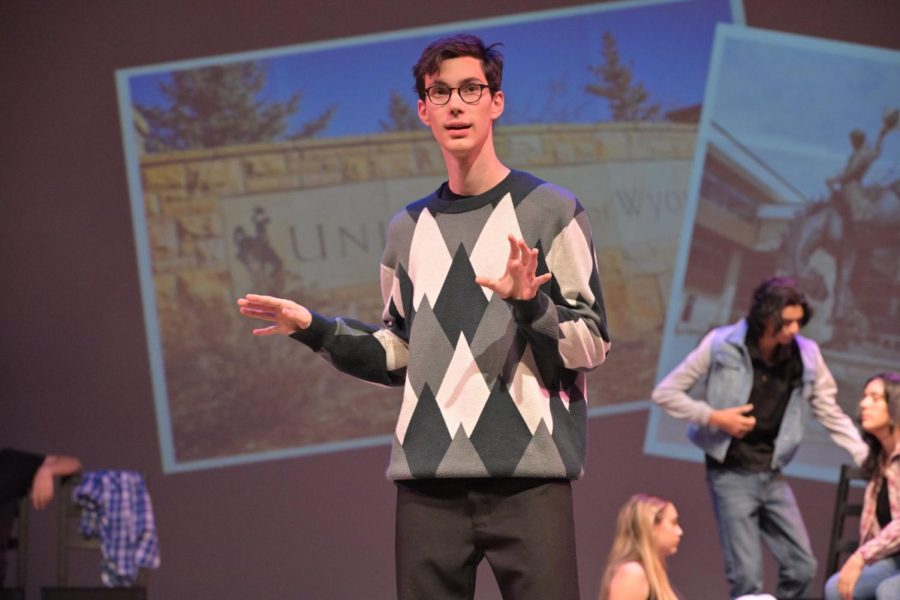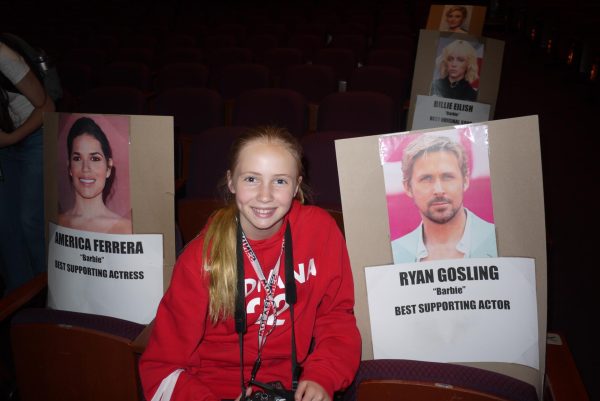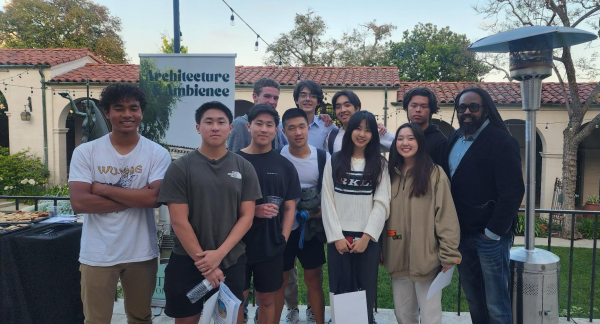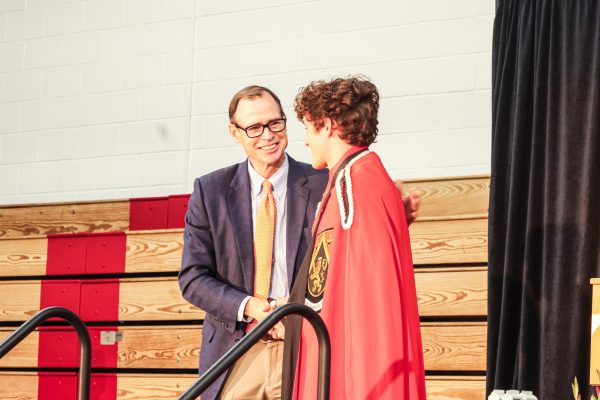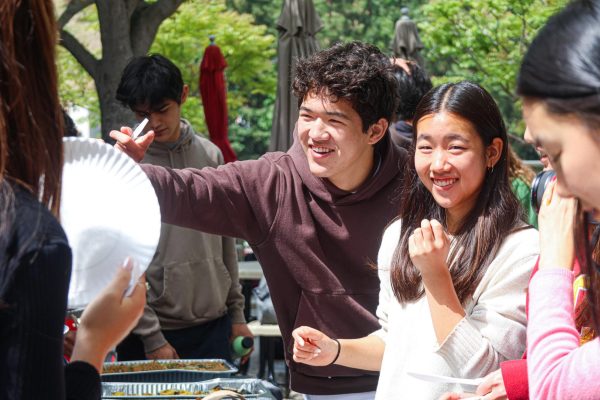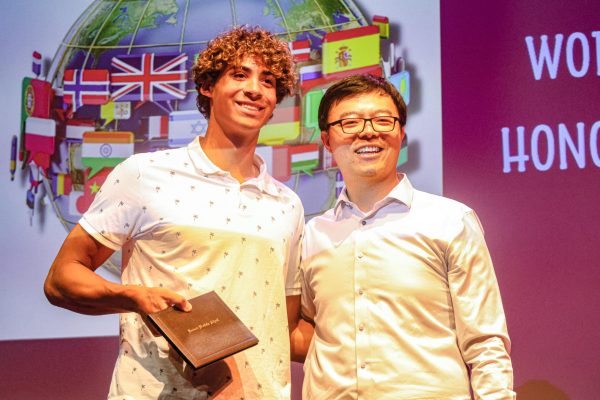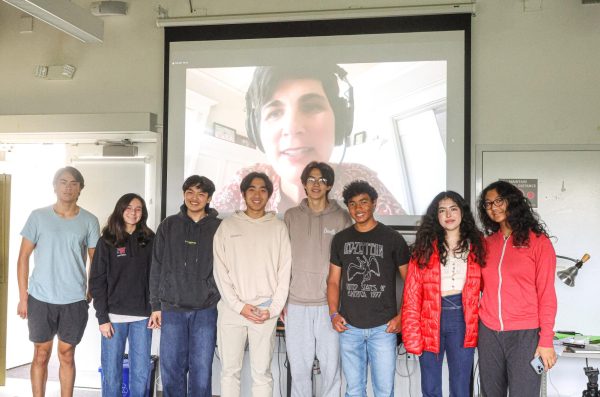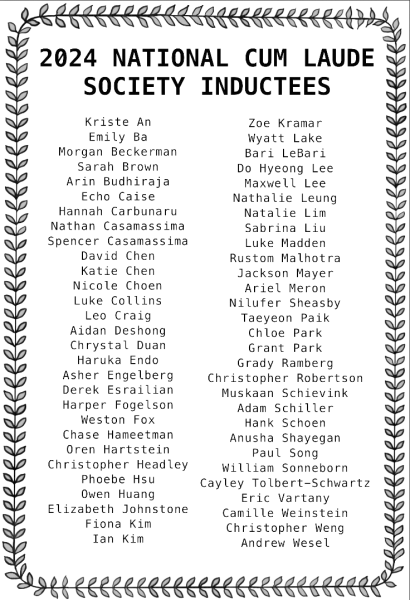Shepard Foundation speaks at HW
Printed with permission of Woo Sim
SPREADING AWARENESS: Carter Staggs ’23 performs in the “Laramie Project: Ten Years Later,” shedding light on LGBTQ rights.
November 17, 2022
Matthew Shepard Foundation Executive Vice President Jeff Mack and Associate Louis Sisneros spoke to students over Zoom in Rugby Theater Oct. 25. They discussed Matthew Shepard’s story, the history of fighting for equality and the foundation’s effort to stop hate crimes.
In October 1998, Matthew Shepard, a 21-year-old student at the University of Wyoming, was brutally murdered in one of the nation’s most infamous anti-gay hate crimes, according to the foundation’s website. Two months after Matthew Shepard’s murder, his parents, Judy and Dennis Shepard, started the foundation to honor him and his story.
In an interview with The Chronicle, Judy Shepard said her message to young people looking to make a difference is that radical progress takes time.
“My advice to young activists is to just be patient,” Judy Shepard said. “We all are lit on fire when the cause comes to us, but nothing changes overnight. And persistence really is the key.”
Mack and Sisneros spoke to students in light of the school’s performance of the play “Laramie Project: Ten Years Later.” The play depicts the stories of people living in Laramie, Wyoming, 10 years after Matthew Shepard was murdered there.
Sisneros said it is important to continue sharing Matthew Shepard’s story to spread awareness about the enduring challenges the gay community faces as our society is continuing to make progress towards LGBTQ equality.
“Lots of people haven’t heard [Shepard’s story],” Sisneros said. “So, hearing about it sort of reawakens the feeling that was nationwide when it actually happened. It’s also the kind of story that sort of gets people to open their eyes and see things a little bit differently.”
Zoe Roth ’24 said the speakers’ message about how future generations can influence their communities resonated with her, as she expresses faith in a more caring, compassionate world.
“I really appreciated all their talk about hope for the future generation, hope for a better world and change in the awful people of the world,” Roth said. “I believe it is important to remember Matthew because he represents a need for change.”
Judy Shepard said there have been changes in the way people view the LGBTQ community since Matthew Shepard’s murder.
“I think we need to expand the meaning of the story and relate it to what’s happening in today’s world,” Judy Shepard said. “This is a very different world than Matt’s world. And the gay community is far more accepted and recognized [but] still not to the extent that it should be.”
Sisneros said they were able to start the foundation with donations they received after Matthew Shepard’s murder.
“On what would have been Matt’s birthday, his parents took $140,000 that had been sent in 20,000 cards and letters,” Sisneros said. “People’s intent was that it would cover costs of hospitalization, his funeral, all of that, [but] they didn’t need it for that. So they took that money instead and started the foundation.”
Mack said the foundation also rallied support for The Matthew Shepard and James Byrd, Jr. Hate Crimes Prevention Act, a law that expanded the limits of what defines a hate crime to include race, gender, sexual orientation or disability.
“James Byrd Jr. was killed because of his color in a hate crime and Matt was killed because of his sexuality in a hate crime, so [the act] was very important for Judy and Dennis,” Mack said. “They spoke to all sorts of politicians and everybody on the Hill to make sure that this [act] would pass.”
The foundation also operates outreach programs for schools, communities and law enforcement. The programs include high school and college productions of “The Laramie Project” and “The Laramie Project: Ten Years Later,” hate crime prevention training for police and FBI departments and speaker events across the nation.
Mack said it is important for marginalized groups to unify against hate crimes.
“We have to stand up with every community when there’s a hate crime done,” Mack said. “The marginalized communities all have to stick together because there are some of us in each.”































